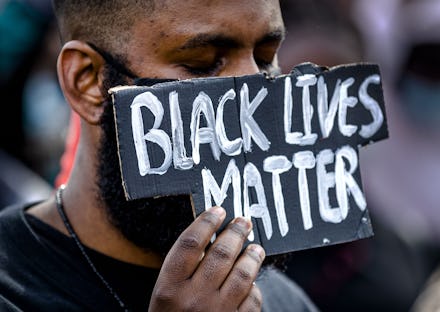The case of a 2011 police killing of a Black man in his home has new momentum

Earlier this week, an appeals court ruled that the family of Kenneth Chamberlain Sr., a man who was murdered by police in his own home, could finally bring charges against the police. Chamberlain, a 68-year-old Black man, was killed in 2011 by police officers in White Plains, New York.
Now, nearly a decade later, the 2nd Circuit Court of Appeals ruled that a lower court judge was wrong to dismiss the family's case, which said that the police had illegally entered Chamberlain's home and used excessive force against him. The ruling opens up an avenue for the Chamberlain's family to seek justice that was denied by the lower court judge's ruling.
Democracy Now! reconstructed the incident in a transcript earlier this week. On the evening of his death, Chamberlain rolled over in his sleep around 5:00 a.m., unknowingly triggering his LifeAid medical alert necklace. LifeAid staff, unable to reach Chamberlain by phone, then called the White Plains police department to conduct a wellness check. Per Democracy Now!, which cited audio recorded by Chamberlain's LifeAid pendant, when the officers arrived at the Chamberlain's apartment, they started banging on his door. Chamberlain repeatedly told them that he was fine, and he could be heard telling the LifeAid operator that he needed help because he was afraid of the police, whom he said had their guns out.
The police then took the door off its hinges, entered the apartment, and used a Taser on Chamberlain, who told the police that he "had a bad heart" when they entered. These events were recorded by a police video camera attached to the Taser gun itself. According to the police, Chamberlain lunged at them with a knife, and the officer fired two shots in response that killed him. Per Democracy Now!, as Chamberlain was repeatedly telling the officers that he didn't need assistance when they were at his door, one officer called him the n-word.
The appeals court decision comes after many years of the Chamberlain family trying to navigate the court system in order to bring justice for him. Westchester County, where White Plains is located, convened a grand jury, which refused to indict the officers and rejected a $21 million civil lawsuit filed by the family. Later, the case was picked up by the U.S. Attorney's Office, which closed its investigation in January 2018 without bringing charges against the police.
"Extrajudicial killings and summary executions of unarmed Black men, women, and children is no longer going to be tolerated."
The Chamberlain family's lawyer, Mayo Bartlett, told Democracy Now! that while the family did open a case, they were never fully able to make their claims. "It certainly was the role of the court to allow us to at least argue that [police had unlawfully entered Chamberlain's home] to a jury so that a jury could make a reasonable determination one way or the other. We were prevented from doing that. So, as a consequence, it’s been our position all along that there was no full and fair trial on the merits of this case." Bartlett said that he will be asking for an independent investigator to take on the case, adding that though nearly nine years have passed, the officer could still be charged with murder.
The appeals court decision overlaps with nation-wide protests following the police killing of George Floyd, who died after a Minneapolis police officer knelt on his neck for nearly nine minutes while he was handcuffed on the ground. While Floyd's death occurred in a different state and nearly a decade after Chamberlain's, both men's cases demonstrate why protesters have called increased transparency into police proceedings and departmental regulations.
During an interview with Democracy Now!, Kenneth Chamberlain Jr. addressed the timing. "Now, with this coming out around the killing of George Floyd and the rallying, the protesting, its significance, I can’t really speak to," he said. "But what I can say is that what you’re seeing happening around the world right now is not just about the killing of George Floyd. It’s about the killing of Tamir Rice. It’s about the killing of Ramarley Graham. It’s about the killing of Kenneth Chamberlain Sr. and the countless other names that I can’t even begin to mention."
Chamberlain Jr. said that the protests demonstrate people coming together amd "saying that extrajudicial killings and summary executions of unarmed Black men, women, and children is no longer going to be tolerated."